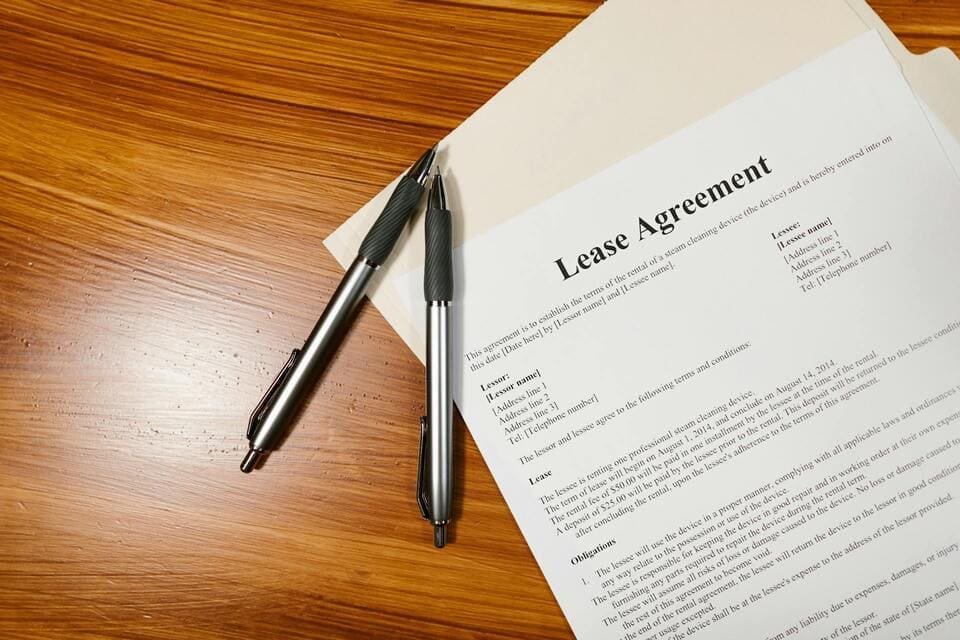Fillable Form DC Commercial Lease Agreement
DC Commercial Lease Agreement is a contract between a landlord and a business for the rental of property, usually used for offices and in business related transactions. In signing a commercial lease, it is important to understand the rights and responsibilities of each party.
Fill and sign DC Commercial Lease Agreement online and download in PDF.
What is a DC Commercial Lease Agreement?
A DC Commercial Lease Agreement is a legally binding contract between a landlord and a tenant for the rental of commercial property located in Washington, D.C. This agreement outlines the terms under which the tenant may occupy the space for business purposes, including the length of the lease, rent amount, and any responsibilities related to maintenance, utilities, and property improvements. Commercial properties covered by these agreements typically include office spaces, retail stores, warehouses, and industrial facilities.
DC lease agreement forms are crucial for both the landlord and the prospective tenant to clearly understand their obligations and rights regarding the rental unit. A comprehensive rental agreement ensures that both parties agree on specifics such as the monthly rent, the use of the rental property, and any additional responsibilities like utilities or maintenance the tenant pays. The rental agreements often reference the rental housing act, which provides legal protections and a framework within which these agreements operate.
It's important for both the landlord and tenant to familiarize themselves with the role of the rent administrator, who can offer assistance in resolving disputes and ensure compliance with local regulations. Overall, a well-drafted commercial lease agreement facilitates a smooth and transparent business relationship between both the landlord and the tenant, thereby reducing potential conflicts.
How do I fill out a DC Commercial Lease Agreement?
Get a copy of DC Commercial Lease Agreement template in PDF format.
A fillable DC Commercial Lease Agreement template can be found here. Lease agreement templates are, for the most part, general. Make sure to make the necessary additions or subtractions to the template as fits the context of your business or residential lease agreement terms. These kinds of agreements sometimes come with non disclosure forms in order to protect the privacy of the property owner and the tenant.
Date Made and Effective
Enter the date that this agreement was made and becomes effective by.
Landlord Name
Enter the name of the landlord.
Tenant Name
Enter the name of the tenant.
Address of Building
Enter the address of the building or property owned by the landlord.
Description of Building
Enter a description of the building or property owned by the landlord.
Designation
Enter the designation given to the part of the property being leased.
Term
Enter the beginning and ending dates of the tenant’s lease. Then enter the extended term that tenants may renew the lease for.
Rental
Enter the amount that must be paid in total by the tenant in rent every year, and the amount of rent payments that will be made in installments. Then enter the landlord’s designated payment address and the amount that must be paid for the security deposit. Security deposits are a sum of money paid by the tenant to the landlord as a financial safeguard against potential property damage or failure to comply with the lease terms. It is usually refundable at the end of the lease term, provided the tenant has fulfilled all contractual obligations and the property is returned in good condition.
Finally, enter the amount that must be paid annually and in installments per month for the lease in the event that it is renewed.
Use
This section outlines the terms surrounding how the tenant may use the property being leased.
Sublease and Assignment
This section outlines the terms surrounding subletting the leased property.
Repairs
This section outlines the terms surrounding repairs made to the property.
Alterations and Improvements
This section outlines the terms surrounding any alterations and improvements made to the property.
Property Taxes
This section outlines the property taxes associated with the property.
Insurance
This section outlines the terms surrounding any insurance on the property.
Utilities
This section outlines the terms surrounding the utilities provided with the property.
Signs
This section outlines the terms surrounding the tenant’s right to place signage in the property.
Entry
This section outlines the landlord’s right to enter the property.
Parking
This section outlines the terms of the tenant’s ability to park their vehicle at or near the property. Enter the number of parking spaces being leased, and the monthly rental fee that must be paid for renting said parking spaces (if applicable).
Building Rules
This section outlines the rules of the building set or followed by the landlord.
Damage and Destruction
This section outlines the terms surrounding how damages and destruction of the property will be managed.
Default
This section outlines the terms surrounding what will happen should the tenant default in their payments.
Quiet Possession, Condemnation, and Subordination
These sections outline the terms surrounding the quiet possession, condemnation, and subordination of the property.
Security Deposit
This section outlines the terms surrounding the security deposit paid to the landlord.
Notice
Enter the addresses to which any correspondence send to the landlord or the tenant should be sent.
Brokers and Waiver
These sections outline the terms surrounding the property being shown to brokers, as well as the terms surrounding any waiver or lack thereof that this agreement shall include.
Memorandum of Lease
This section states that this lease should not and shall not be filed for record, but that a memorandum of lease will be provided upon request of either landlord or tenant as necessary.
Headings
This section outlines that the headings in this form are purely for convenience and should not be considered in interpreting the meaning of any part of the lease.
Successors, Consent, and Performance
These sections outline the terms surrounding the successors of the tenant and landlord, consent for matters that require the landlord’s consent, and the performance of the landlord and tenant with regards to the fulfillment of the various terms outlined through this form.
Compliance with Law, Final Agreement, and Governing Law
These sections certify that this agreement complies with all relevant laws and is the final agreement between the tenant and the landlord, and is governed by the law of the state of DC.
Signatures
Have the landlord and tenant enter their names and signature in the spaces provided.
Start filling out a DC Commercial Lease Agreement sample and export in PDF.
Frequently Asked Questions (FAQs)
What types of properties are covered by a DC Commercial Lease Agreement?
This lease covers commercial properties such as office spaces, retail shops, warehouses, and industrial facilities. It is specifically for properties used for business purposes, not residential.
What is the difference between a gross lease and a net lease in a DC Commercial Lease Agreement?
In a gross lease, the landlord covers most expenses, including utilities and property maintenance. In a net lease, the tenant is responsible for additional costs like taxes, insurance, and maintenance.
How long does a typical DC Commercial Lease Agreement last?
Commercial leases in Washington, D.C., usually range from one to five years but can vary depending on negotiations. Some leases also include options to renew at the end of the term.
Can a DC Commercial Lease Agreement be terminated early?
Yes, but early termination usually requires provisions to be included in the lease agreement, such as an early termination clause or a buyout option. Otherwise, breaking the lease could result in penalties or legal action.
What is a "security deposit" in the context of a DC Commercial Lease Agreement?
A security deposit is a sum of money paid by the tenant to the landlord to cover potential damages or unpaid rent. The amount and terms for returning the deposit are usually specified in the lease.
Who is responsible for repairs under a DC Commercial Lease Agreement?
The responsibility for repairs varies depending on the lease type. In a gross lease, the landlord typically handles repairs, while in a net lease, the tenant may be responsible for maintenance and repairs.
Can the rent amount change during the lease term?
Rent can increase during the lease term if an escalation clause is included in the agreement. These clauses allow for rent adjustments based on factors like inflation or property expenses.
What happens if the tenant defaults on the lease?
If a tenant defaults, the landlord can pursue remedies outlined in the lease, such as terminating the agreement or seeking legal action to recover unpaid rent. The lease should specify what constitutes a default and the penalties.
Is a personal guarantee required in a DC Commercial Lease Agreement?
Sometimes a landlord may require a personal guarantee, especially if the business is a new entity with no financial history. This guarantees that the tenant or a business owner will be personally liable for the lease obligations.
What is the role of a "use clause" in a DC Commercial Lease Agreement?
A use clause specifies the type of business or activities that are allowed on the leased premises. This ensures that the tenant operates within the agreed-upon business scope and complies with zoning laws.
Can a tenant sublease the property under a DC Commercial Lease Agreement?
Subleasing is allowed only if the lease agreement includes a provision permitting it. Even then, subleasing often requires the landlord’s written consent.
What is an "exclusive use" provision in a commercial lease?
An exclusive use provision prevents the landlord from leasing nearby spaces to competitors of the tenant. This protects the tenant’s business by limiting direct competition within the same property or area.
Who pays for property taxes under a DC Commercial Lease Agreement?
In a net lease, the tenant typically covers property taxes, while in a gross lease, the landlord is responsible for those costs. The lease should clearly outline who is responsible for these payments.
What are common rent payment structures in DC Commercial Lease Agreements?
Rent can be structured as a fixed monthly payment, a percentage of the tenant’s revenue (common in retail), or a combination of both. The terms depend on the negotiations between the tenant and the landlord.
Is insurance required for tenants in a DC Commercial Lease Agreement?
Yes, tenants are often required to carry insurance, such as liability coverage, to protect against damage or injuries that occur on the premises. The lease agreement will typically specify the type and amount of coverage needed.
What if I do not file a DC Commercial Lease Agreement?
If a DC Commercial Lease Agreement is not properly documented and filed, both parties might face legal uncertainties and disputes. The absence of a written agreement makes it challenging to enforce terms, claim legal rights, or seek remedies if an issue arises. It's essential for both the landlord and tenant to have a formal agreement to protect their interests.
Are there any fees associated with filing this form?
Typically, there are no direct fees for filing a commercial lease agreement itself. However, drafting the lease agreement may involve costs related to legal advice or services if an attorney is consulted to ensure that the documentation complies with local laws and regulations.
Can a tenant withhold rent from the landlord for any reason?
A tenant may be permitted to withhold rent if there is a legal justification, such as unresolved major repairs that affect the habitability or use of the leased property. However, tenants must follow specific legal procedures before withholding rent, ensuring compliance with local laws. Consulting with an attorney for guidance in such a situation is advisable.
Create a DC Commercial Lease Agreement document, e-sign, and download as PDF.
Keywords: DC Commercial Lease Agreement DC Commercial Lease Agreement Template DC Commercial Lease Agreement Sample DC Commercial Lease Agreement form DC Commercial Lease Agreement pdf


















